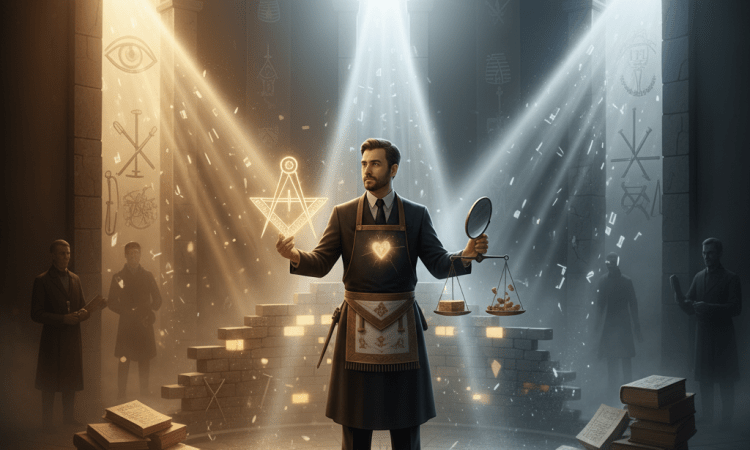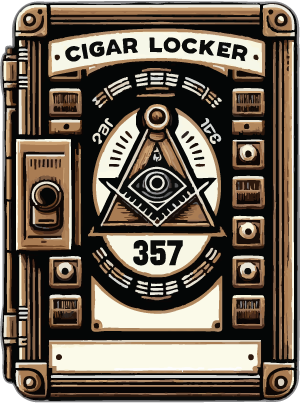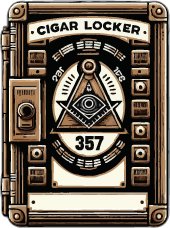
I want to apologize for the radio silence on the blog for a while. Life has a way of throwing a lot at you, and as you know, us Masons are taught to work within the length of our cable tow and manage our time with the 24-inch gauge. That means balancing our duties to God, our families, our neighbors, and ourselves. And sometimes, that last one means you’ve got to step back and re-prioritize. So, thank you for your patience! I’ve been doing some thinking, and I’ve got a new post for you.
In Freemasonry, Light is a pretty big deal. We seek it, we receive it, and we are encouraged to spread it. When you first step into the Craft, it feels like everything is suddenly illuminated—a beautiful, glowing world of knowledge and symbolism. It’s an awesome, transformative experience.
But here’s a thought that sometimes gets overlooked, and frankly, we should probably talk about it more: not all light is good light.
No, I’m not talking about some shadowy conspiracy. I’m talking about a real, human tendency to get, well, “Blinded by the Light!” (You know the song, right? I’ll let you decide if you’re a Springsteen fan or an Earth Band fan, but either way, you get it!) We get so caught up in the sheer brilliance, the endless amount of information, or the charisma of a particular source, that we might forget to truly discern what we’re seeing.
Our Craft constantly encourages us to learn and grow, to seek more light in Masonry. This pursuit of knowledge is super important. However, just as we build our lodges with careful planning and sound materials, we must build our mental and spiritual foundations with equally robust and truthful information. In today’s world, “light”—or information—comes at us from every direction, and it’s up to us to make sure we’re building on solid ground.
This is where the caution comes in. Just because something is presented as a “Masonic truth” or “ancient knowledge” doesn’t automatically make it so. We must cultivate a spirit of critical inquiry.
A perfect example is when you propose a new idea in lodge and a well-meaning, seasoned brother offers some counsel: “We tried that before, and it didn’t work.” While that may have been a fact back then, it’s not always applicable today. The circumstances have changed, and a new approach might be exactly what’s needed. We should always respect the wisdom of those who have come before us, but we must also remember to trust, but verify.
And here’s the kicker: even so-called “bad light” isn’t entirely without value. By examining information that is inaccurate or misleading, we can learn important lessons about what to avoid, how to better discern the truth, and how to strengthen our own understanding. It’s a way of refining our internal compass.
So, as we continue our individual and collective quest for more light, let’s remember the importance of discernment. Let’s keep our minds open, our intellects sharp, and our dedication to truth unwavering. Always strive to learn, always be open to new ideas, but always, always trust, but verify. That’s how we truly build upon a solid and illuminated foundation.





